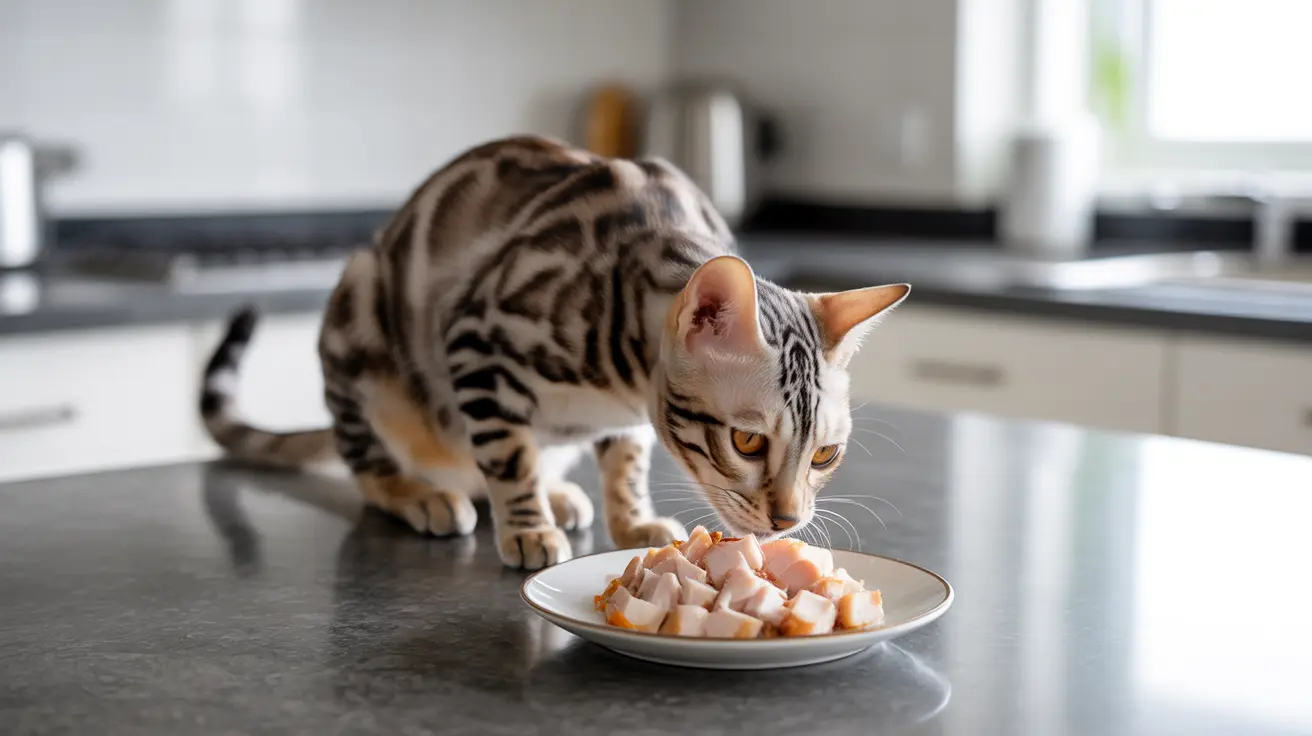As cat owners increasingly seek nutritious food options for their pets, turkey often comes up as a potential protein source. The good news is that cats can indeed eat turkey, and it offers numerous health benefits when prepared and served correctly. This comprehensive guide will help you understand everything you need to know about feeding turkey to your feline friend.
Turkey is not just safe for cats; it's actually an excellent source of lean protein that aligns well with their carnivorous dietary needs. Let's explore the benefits, preparation methods, and important considerations for incorporating turkey into your cat's diet.
The Nutritional Benefits of Turkey for Cats
Turkey stands out as a highly nutritious meat option for cats, packed with essential nutrients that support their overall health. The lean protein content helps maintain strong muscles and supports various bodily functions.
Key nutritional benefits include:
- High-quality protein for muscle maintenance
- Essential B vitamins for energy metabolism
- Minerals like selenium, zinc, and phosphorous
- Taurine, a crucial amino acid for heart health
- Low fat content, making it ideal for weight management
Safe Preparation Methods
Proper preparation is crucial when feeding turkey to your cat. Following these guidelines ensures your pet can safely enjoy this nutritious meat:
Cooking Guidelines
- Always thoroughly cook turkey to eliminate harmful bacteria
- Remove all bones, skin, and fat
- Avoid seasonings, oils, and additives
- Cut into appropriate bite-sized pieces
- Never serve raw turkey to your cat
Serving Recommendations
- Offer plain, cooked turkey meat
- Maintain portion control (no more than 10% of daily calories)
- Start with small amounts to monitor tolerance
- Serve at room temperature
- Store unused portions properly in the refrigerator
Different Types of Turkey and Their Effects
Not all turkey preparations are created equal when it comes to feline consumption. Understanding the differences can help you make the best choices for your cat.
White vs. Dark Meat
While both types are safe for cats, white meat contains less fat and calories, making it ideal for regular feeding. Dark meat offers more iron and B vitamins but should be served in moderation due to higher fat content.
Turkey Liver Considerations
Turkey liver is incredibly nutrient-dense but should only be offered as an occasional treat. Excessive consumption can lead to vitamin A toxicity, so moderation is key.
Potential Risks and Precautions
While turkey is generally safe for cats, there are several important considerations to keep in mind:
- Avoid processed turkey products like deli meat
- Never feed turkey with bones
- Watch for signs of food allergies or sensitivities
- Keep seasoned holiday turkey away from your cat
- Monitor for any digestive issues when introducing turkey
Frequently Asked Questions
Can cats eat turkey safely, and what are the benefits for their health?
Yes, cats can safely eat plain, cooked turkey. It provides high-quality protein, essential amino acids, and various vitamins and minerals that support overall feline health. Turkey is particularly beneficial for muscle maintenance and heart health due to its taurine content.
How should I prepare and serve turkey to my cat to avoid health risks?
Cook turkey thoroughly without seasonings or additives. Remove all bones, skin, and fat. Cut into small, manageable pieces and serve at room temperature. Only offer plain, cooked turkey meat and avoid processed turkey products.
What are the nutritional differences between white and dark turkey meat for cats?
White meat is leaner and lower in calories, making it ideal for regular feeding. Dark meat contains more iron and B vitamins but has higher fat content. Both are nutritious options when served in moderation.
Can cats eat turkey liver, and are there any health concerns I should be aware of?
Cats can eat turkey liver in moderation as it's highly nutritious. However, excessive consumption can lead to vitamin A toxicity. Limit liver treats to occasional small portions as part of a balanced diet.
How much turkey can I safely include in my cat's diet without causing digestive issues?
Turkey should not exceed 10% of your cat's daily caloric intake. Start with small amounts and monitor for any digestive reactions. Introduce turkey gradually and maintain consistent portion sizes to prevent stomach upset.
Conclusion
Turkey can be a healthy and nutritious addition to your cat's diet when properly prepared and served in moderation. By following the guidelines outlined above, you can safely incorporate this protein-rich meat into your feline's meal plan while avoiding potential risks and complications.






